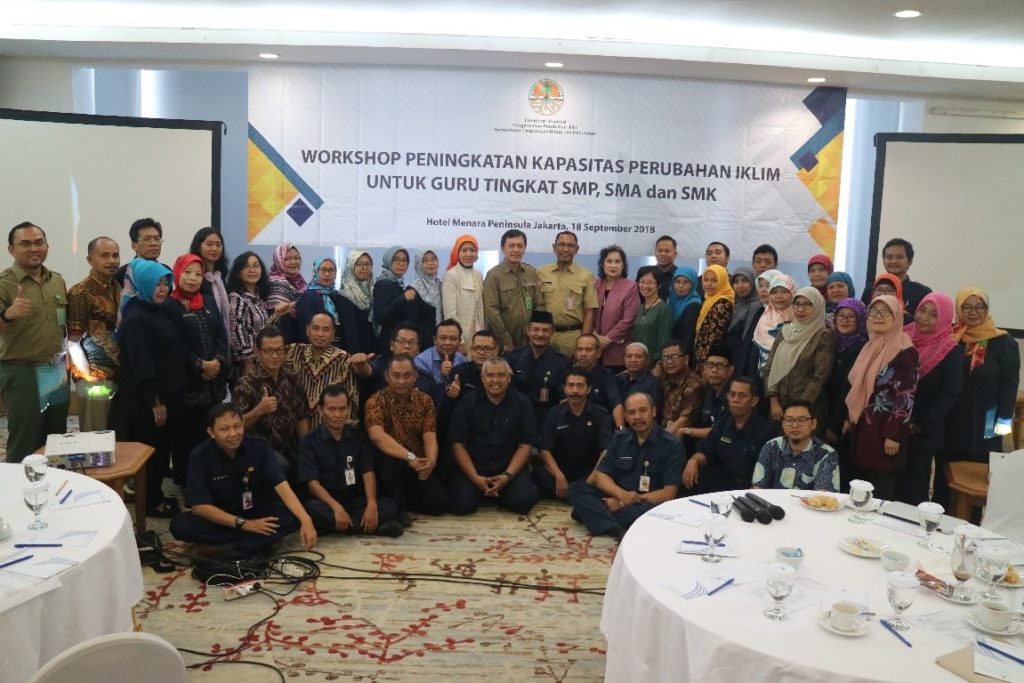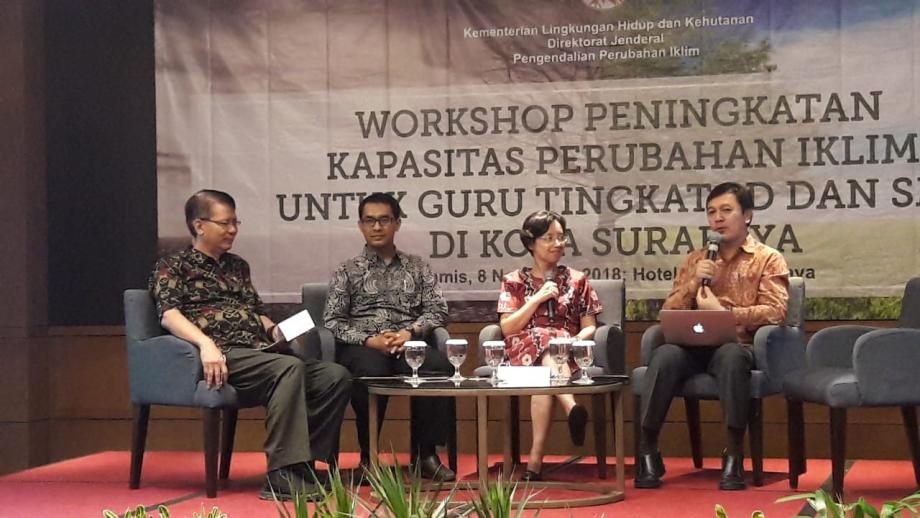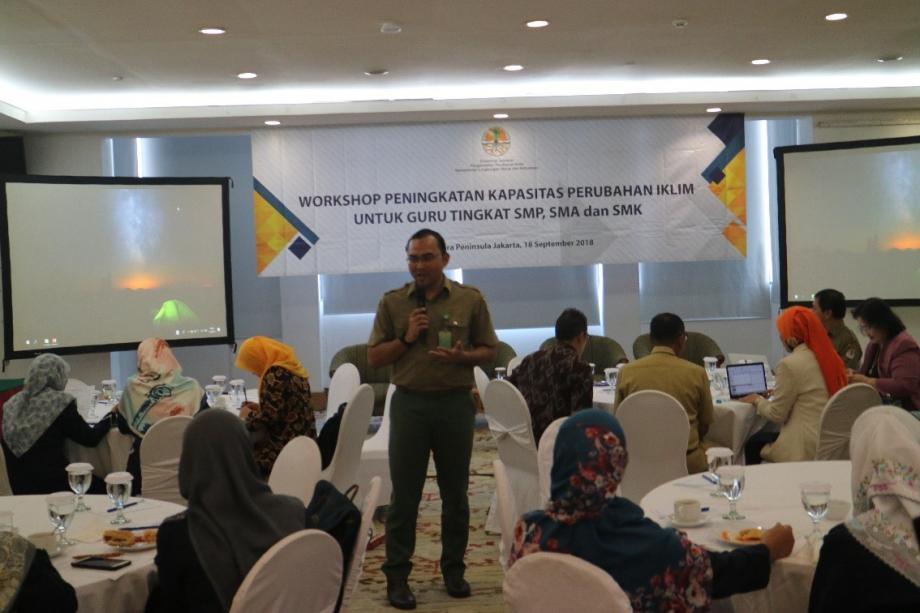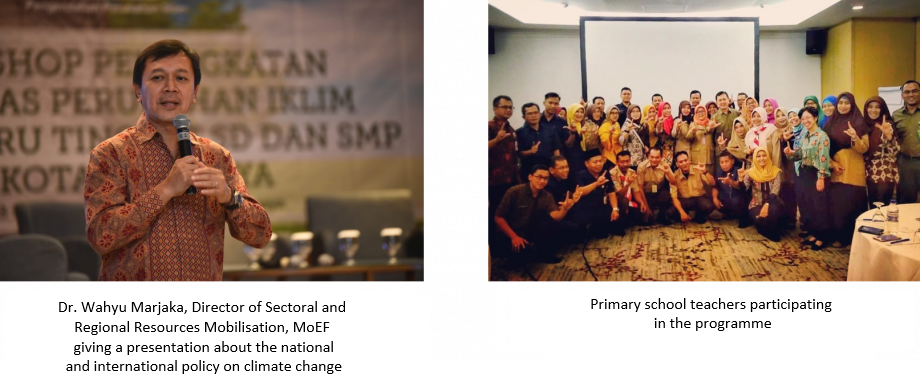Climate change impacts are increasingly evident in Indonesia with more frequent flooding, landslides and droughts. One of the most effective and cost-efficient ways to help tackle these issues is building the capacity of the relevant social groups at the national and regional level. Teachers have a huge impact on shaping the young minds and therefore on strengthening the responses to all climate-related challenges.

Focusing on the key professionals educating the next generation of citizen and decision-makers, the Ministry of Environment and Forestry (MoEF) of Indonesia in collaboration with the Local Education Office launched a new initiative designed to enhance the knowledge of school teachers on climate change, including causes, impacts, mitigation and adaptation measures, as well as how to best teach these concepts in the classroom. Three workshops have been organized so far, respectively on 14 August 2018 in Jakarta, 18 September 2018 in Jakarta, and 8 November 2018 in Surabaya, involving over 140 teachers from the primary to the high school level.

Each event was structured around 3 sessions, namely a panel, a group discussion, and segment dedicated to climate change communication. The panel session featured 3 speakers talking about global warming, national and international climate change policies, and the integration of climate change issues into the national curriculum. During the second session, participants exchanged their views on climate change related teaching and the integration of these topics into the national curriculum and supporting materials. The final session provided useful tips on how to communicate the issue of climate change to students.

This initiative draws inspiration from a teachers’ training programme on climate change rolled-out by the National Teacher Training Institute (INAFOCAM) and the National Council on Climate Change and Clean Development Mechanism (CNCCMDL) of the Dominican Republic, with UN CC: Learn’s support. This programme came to the attention of the Ministry of Environment and Forestry (MoEF) during the 2017 UN CC: Learn Country Exchange Workshop, allowing representatives from all UN CC: Learn partner countries to share their experiences in promoting climate change education and training.

“With available resources, we tried to replicate what has been done in the Dominican Republic. So far what we have done is more to improve teachers’ understanding and awareness of the issue of climate change and how this issue can be conveyed and accepted by students.” – noted the Ministry of Environment and Forestry of Indonesia.

The programme has collected very positive reactions from the participants. Building on its success, the initiative will be further extended to 5 regions during the course of 2019.
